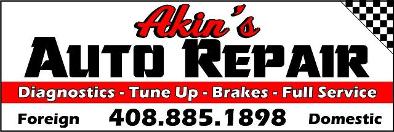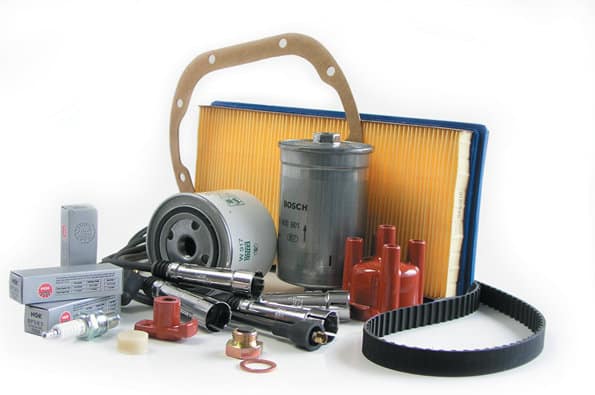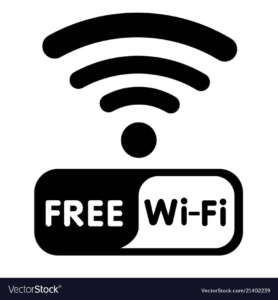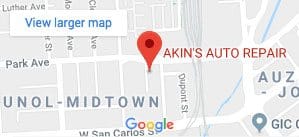

Auto Tune Ups | San Jose, CA
here at akin’s auto repair we offer factory schedule maintenance such as spark plug, ignition wire, engine air filter, cabin air filter, fuel filter, pcv valve, brake fluid flush, power steering fluid flush, transmission service, transfer case service, differential service. 30k service, 60k service, 90k service with all the inspections. Trust Akins Auto Repair with your next auto tune up service. Contact us in San Jose
Tune-Up: What Exactly Is It?
What Is a Tune-Up?
After “oil change”, the phrase “my car needs a tune-up” is the next most popular request heard in the Automotive Service and Repair Industry. When a service writer or technician asks the driver why the vehicle needs a “tune-up,” the customer usually says that the vehicle is not “running right.”
Maybe it’s idling rough. Maybe it’s hard to start. It could lack power, get poor mileage, or have many other symptoms. Many people believe that a tune-up will solve all or most of these problems, but the truth is, modern cars do not require tune-ups and poor performance almost always means the car needs a repair.
The phrase “tune-up” is from a time when automobiles were not computer controlled and an auto mechanic could actually adjust the timing, idle speed, fuel mixture, and other things in order to “tune up” the operation of the engine, similar to the way a piano tuner will tune up a piano to bring it back into proper pitch and operation by adjusting the tension on the strings, adjusting the action, and reshaping the hammers.
Maintenance: The Modern Day Tune-Up
Nowadays, the term “tune-up” actually refers to replacing and servicing the wear items in the Ignition and Fuel System. For example:
- The Air Filter and Fuel Filter will become less efficient and need replacing
- The Spark Plug electrodes will wear down and need replacing
- Because of oil vapors produced by the Positive Crankcase Ventilation (PVC) System, the Throttle Body and fuel system will need to be cleaned and/or DE-carbonized
The vast majority of the time, there are no adjustments needed (or possible), because the engine computer controls all the functions of the Ignition and Fuel System. The “tune-up” is often part of a large 30,000/60,000/90,000 mile service that includes inspections, and fluid and filter changes. These services are part of the manufacturer’s recommended scheduled maintenance detailed in the owner’s manual.
The modern vehicle should not exhibit any performance problems by the time a “tune-up” is due. If there are any performance problems, usually a Check Engine Light will illuminate, indicating that the vehicle needs some attention because it is not running properly and is polluting the air.
Tune-Ups: Some Historical Perspective
Up until the mid 1970s, most gasoline-powered cars and light trucks had Spark Plugs, Spark Plug Wires, a single Ignition Coil, a Distributor Cap and Rotor, a set of Ignition Points, and a Condenser. A Carburetor would combine the fuel with air and then deliver this “mixture” to the cylinders. All of these components needed regular adjustments, or “tune-ups.”
Compared to the vehicles of the 21st century, these technologies were very crude and required a lot of care and multiple tune-ups to properly maintain them. The Spark Timing would go out after 10,000 miles of driving because the Ignition Points would wear and become pitted or “burnt.” The Spark Plugs would foul and not work properly because the Carburetor would get dirty and varnished from all of the oil vapors being recycled into the Air Cleaner from the Positive Crankcase Ventilation (PVC) System. This varnish would plug up the Air Bleeds in the Carburetor and prevent it from mixing the fuel properly with the air. The Spark Plug Wires were usually damaged from oil leaking on them from the older style cork-and-rubber Valve Cover Gaskets. It was common for a vehicle to need a “tune-up” every year, or even more often if the vehicle was driven more than 10,000 miles per year.
By the mid 1980s, most vehicles had one or two computers involved with the management of the engine operation because the Environmental Protection Agency found that when cars needed tune-ups, the amount of tail pipe emissions they were producing was increasing exponentially.
The Ignition System was the first to receive electronic and, later, computer controls. The Ignition Points and Condenser were replaced by a Transistor Controlled Ignition Module that could last the life of the vehicle. Once the Ignition Timing was set, it could stay properly adjusted for 30,000 miles or more. Valve Covers and Valve Cover Gaskets started using Air Craft Engine designs and would not leak for over 90,000 miles. This meant that the Spark Plug Wires could last upwards of 60,000 miles before they failed electrically.
By the mid 1980s, Electronic Port Fuel Injection was phasing out the Carburetor. The ratio of the Air Fuel Mixture was now computer controlled. This allowed for precise compensation to reflect the ever-changing demands put on an engine due to ever-changing driving and weather conditions. Fuel Injection is not nearly as vulnerable to the PVC oil vapors because there are individual injectors for each cylinder located away from the flow of the vapors.
By the late 1990s, most vehicles were using individual coils for each cylinder and the Spark Plugs had platinum-tipped electrodes, which eliminated Distributor Caps and Rotors and most Ignition Wires. Platinum-tipped Spark Plugs could easily go for 60,000 miles, as opposed to the usual 30,000. Some manufacturers were advertising cars that could go 100,000 miles without a “tune-up” until it was discovered that Spark Plugs rusted into the Cylinder heads. A major repair, costing hundreds if not thousands of dollars, was required to remove them. This is why 60,000 miles has proved to be a much more realistic and reliable mileage interval and why many manufacturers are switching back to this recommendation.
Services
We offer service and repair for most manufacturers.
Acura | Audi | BMW | Buick | Cadillac | Chevrolet | Chrysler | Dodge | Ford | GMC | Honda | Hyundai | Infiniti | Jeep | Kia | Lexus | Lincoln | Mazda | Mercedes-Benz | Mercury | Nissan | Oldsmobile | Pontiac | Scion | Subaru | Toyota | Volkswagen
Electrical
- Battery
- Alternator
- Starter
- Charging System
- Lights
- Instruments
Drive Train
- Transmission
- Differential SERVICE
- Wheel Bearings
- CV Joints
- Steering System
- Transmission
- Torque Converter
- Bearing Lube
- Steering Fluid
Miscellaneous
- Wipers
- Washers
- Tires
- Cabin Air Filter
- Engine Oil
- Antifreeze
- Freon ( A/C recharge r134)
- Brake Fluid
Suspension
- Brakes
- ABS System
- Shocks
- Struts
- Wheel Bearings
- Alignment ( SUBLET ONLY )
Engine
- Heat & Cooling
- Air Conditioning
- Belts & Hoses
- Timing Belt
- Exhaust System
- Emission System



 Please call for an appointment. Our services are not always available. For (walk in) we are extremely busy. Thank you.
Please call for an appointment. Our services are not always available. For (walk in) we are extremely busy. Thank you.

